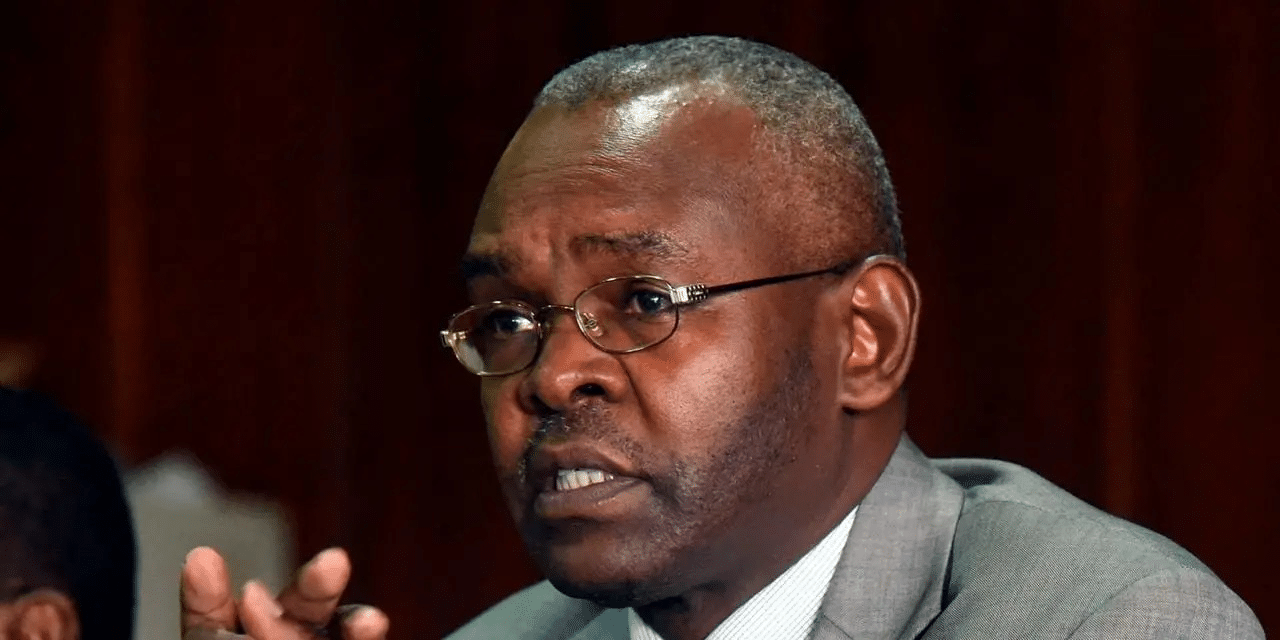

The Central Bank of Kenya is effectively powerless on cracking down on the unlawful bank accounts operated by county governments outside its control.
This is after it emerged that there is no law or legal provisions granting it direct oversight of the accounts opened by the devolved units.
In revelations by the CBK governor Kamau Thugge, to the Senate Standing Committee on Devolution and Intergovernmental Relations, unless accounts have been flagged the regulator said their hands are tied.
This came to the fore after the committee vice chair and nominated senator Catherine Mumma sought to know what role the regulator plays in streamlining the issue of account opening and management in the counties.
However, CBK was first to exempt itself from the blame pointing to regulatory loopholes that the counties are exploiting.
“Just to identify some of the challenges that we face, one is the enforcement limitation that there is a lack of a direct mandate by CBK to compel county governments to close unauthorised accounts,” said Thugge.
According to the 2015 County Government Public Finance Management (PFM) regulations, all county exchequer and government accounts must be maintained at the CBK — except for petty cash (imprest) accounts.
But counties have exploited ambiguities in the overarching PFM Act to justify widespread banking in commercial institutions.
A report by the Controller of Budget Margaret Nyakango, released last month, shows that county governments more than doubled the number of accounts they operate in commercial banks in the past 12 months to March 2025.
The devolved units added 1,763 new openings to hit 3431 accounts at commercial banks.
Thugge, said the PFM Act, gives county treasuries the discretion to open accounts, without specifying the bank.
“They are using that legal gap to open accounts wherever they wish. The regulations say one thing, but the law is not explicit on enforcement or limitations,” the governor told the senator Mohamed Abass chaired committee.
He further added that legal ambiguities within the PFM Act and its regulations have created conflicting interpretations, allowing counties to bypass requirements that most accounts be held at the CBK.
Operational constraints also hamper oversight, with the CBK’s limited branch network making it difficult for counties in remote areas to access its services.
In addition, Thugge pointed to weak coordination among key oversight bodies—including the Office of the Auditor General and the Controller of Budget—which has led to gaps in account visibility and reporting.
The regulator also pointed out legacy arrangements, where some counties continue to use commercial banks due to pre-devolution practices or for operational convenience, further complicating CBK’s efforts to centralize financial oversight.
Thugge suggested that while counties are required to copy the Controller of Budget when opening accounts, compliance is inconsistent.
“If properly enforced, the Controller of Budget would know every time a county opens an account. That could be a useful enforcement entry point,” he said.
Kiambu Senator Karungo Thangwa criticised CBK for not using its authority over commercial banks to demand regular disclosures on county accounts.
“You regulate all these commercial banks. Why not issue a circular requiring them to notify CBK every time a county account is opened?” asked Thangwa. “The way banks require documentation for large deposits, they should do the same for county accounts — and report quarterly.”
Alongside law changes to grant it direct oversight of the accounts, CBK is also now recommending the establishment of a coordinated oversight framework involving the National Treasury, Auditor General, and Controller of Budget to enforce compliance.
It is also called for urgent legislative amendments to align the PFM Act with existing regulations.
CBK is pushing for the fast-tracking of a national Treasury Single Account system, with the goal of rolling out a county-level TSA by the 2026–2027 financial year.
“The idea is to consolidate all county funds at CBK, with special provisions for donor or petty cash accounts to be maintained elsewhere under strict oversight,” said Thugge.












